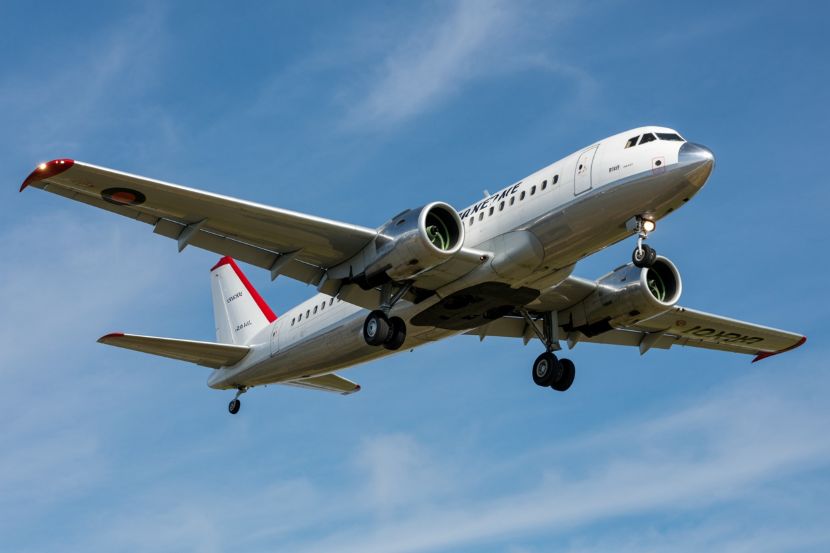Published on
September 28, 2025
In 2025, the safety of flights over the Baltic Sea and surrounding areas has come under increasing threat due to a surge in GPS signal disruptions. With more than 440 documented cases of interference between January and August alone, the aviation sector is grappling with a growing issue that poses significant risks to flight safety. The rise in GPS jamming and spoofing—sophisticated techniques that distort satellite navigation—has raised alarms among authorities in Germany, Sweden, and other countries in northern and eastern Europe. These disruptions have not only disrupted air travel but have also ignited fears that state actors may be behind some of these attacks, complicating efforts to protect aviation systems. As the situation escalates, it is crucial to understand the scope of the issue and its potential impact on travelers.
A Sharp Rise in GPS Disruptions
Germany has witnessed a sharp increase in GPS disruptions affecting civilian aircraft. Between January and August 2025, there were 447 reported incidents, compared to just 25 in 2023. The majority of these disruptions are concentrated in the Baltic Sea and nearby regions. GPS signals, essential for navigation and precise positioning, have been repeatedly jammed or spoofed. Such interferences pose serious threats to flight safety, as pilots rely heavily on these satellite signals for navigation.
In addition to GPS jamming, a more dangerous technique called spoofing has also been observed. Spoofing involves sending fake GPS signals to mislead aircraft crews into believing their location is somewhere it is not, potentially causing pilots to misjudge their position and height, leading to severe navigation errors.
What Are GPS Spoofing and Jamming?
GPS jamming occurs when a powerful signal disrupts or blocks GPS signals, rendering them ineffective for navigation. While this can cause inconvenience to pilots, it is generally less dangerous than spoofing. Spoofing, on the other hand, is a more sophisticated form of interference. By transmitting false GPS data, spoofing can trick the aircraft’s navigation systems into displaying incorrect coordinates or altitude. This technique is especially concerning as it can mislead pilots into making incorrect decisions, endangering both passengers and flight crews.
Increased Frequency and Geographic Focus
The disruptions have become nearly a daily occurrence over the Baltic Sea, particularly affecting flights between Germany, Sweden, and other northern European countries. Reports from Sweden show that in 2025, the number of GPS disruptions has reached 733, a dramatic increase from just 55 in 2023. These incidents are mostly concentrated in the Baltic region, raising concerns about regional security and the impact on civilian aviation. The German Federal Ministry of Transport has confirmed that flights over the Baltic are particularly vulnerable, and aviation experts are urging authorities to take swift action to address the growing threat.
Potential State Involvement
Some experts believe that state actors may be behind the surge in GPS disruptions. Sweden has pointed to Russia as a potential source of the jamming, especially given the geopolitical tensions in the region. The rise in GPS interference has raised fears that these actions are not just criminal but may also be part of a broader strategy to destabilize air travel in Europe. The implications for civilian aviation are severe, as the risk of misdirection or other navigation issues increases with each disruption.
Industry and Government Response
In response to the growing concerns, Germany’s Federal Association of the Aviation Industry (BDL) has called for stronger protective measures. Joachim Lang, the CEO of the BDL, emphasized the urgent need for collaboration between security agencies, intelligence services, and the aviation industry to enhance the security of air traffic. The BDL advocates for an interdepartmental center dedicated to monitoring and responding to GPS disruptions in real-time.
The German air navigation service provider, Deutsche Flugsicherung (DFS), has committed to continuously monitoring GPS interference and sharing reports with relevant authorities. This is crucial for investigating the causes and determining the most effective countermeasures. The growing number of GPS disruptions requires a coordinated international effort to safeguard the future of European aviation.
What Should Travelers Do?
For travelers flying over the Baltic Sea or any regions prone to GPS disruptions, there are a few safety precautions to consider:
Stay Updated: Monitor flight updates and news regarding possible disruptions, as certain areas may experience more interference than others.
Know Your Route: Flights over the Baltic Sea and northern Europe may be impacted more by GPS disruptions, so be aware of possible delays or detours.
Consider Alternatives: If you’re flying to or from regions heavily affected by GPS disruptions, check if there are alternate routes available.
The Need for Stronger Aviation Security
As the threat to GPS navigation grows, both national and international aviation authorities must strengthen security measures. The surge in GPS jamming and spoofing not only threatens the safety of civilian flights but also raises broader concerns about airspace security in Europe. Efforts to improve GPS resilience and collaboration between industry and government will be crucial in ensuring the safety of passengers and crews. The need for advanced systems to detect and counter these interferences has never been more urgent.
In Summary
The rising number of GPS disruptions in Europe, especially over the Baltic Sea, has become a significant concern for aviation safety. The potential involvement of state actors in these attacks has added another layer of complexity to an already critical issue. To safeguard travelers and flight crews, aviation authorities are calling for stronger security measures and enhanced cooperation between all involved parties. As the situation develops, travelers should stay informed and prepared for potential delays or changes in their flight plans.
